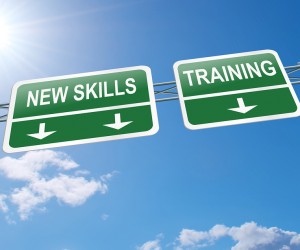Skills development in the water sector has become a major concern over the past 10 years and Government has focused on increasing scarce and critical skills in the country.
Skills development in the water sector has become a major concern over the past 10 years. Government has focused on increasing scarce and critical skills in the country. Statistics show a significant increase in the number of Science and Engineering graduates throughout academic institutions in the country. There is also a marked increase in the number of female graduates in Science and Engineering. Collective efforts by government institutions and government sectors to increase skills have proven to be more successful than can be measured on the ground.
Equity in relation to growth is currently a global matter that is under much scrutiny. The World Economic Forum has brought equity under the spotlight due to it having an impact on how the water resources in a country are distributed and managed. The Water Reforms in most developing countries have sparked large scale discussions around provisioning of water for all. Human Development and Water Resource Management are matters that countries must handle collectively. Maintaining and developing skills within the water sector is critical to sustain the nature, structure and functioning of the required water specialists. The other factor that must also be maintained is the transformational equity demands of the country. The notion that there is a lack of experienced previously disadvantages scientists will have to be addressed directly to meet all the future demands of the sector in a short space of time.
A list of skills required in the water sector a structure or framework was designed to logically order the skills. The Water Sector Competency Framework’s was developed through a process of iteration by South African researchers from their knowledge of and experience in the water sector. The skills themselves were formulated after extensive research of local and international documentation and training briefs. The Framework is pivotal in the Skills Gap analysis since it provides a generic understanding of the competencies necessary to successfully fulfil a technical and scientific role within any Water Sector Institution. Rand Water has made stride in scientific skills development through various pipeline initiatives and at different levels. It has successfully rolled out Water and Wastewater Learnership from NQF level 2 to 4. There have been many students who have been given Experiential Learning in science fields of Chemistry, Microbiology and Water Care for them to receive practical experience to be awarded National Diplomas. Students in first, second, third and even fourth year are awarded bursaries for various scientific streams. They are given opportunities to do vocation work and a period of training after completing their degrees. There has also been since 2008 a specialised scientific graduate program to train a number of professional graduates for more specialised scientific positions. The results have been most encouraging and have become a vital pipeline for scientific skills required throughout the organisation.
Rand Water’s skills development initiatives are aimed primarily at meeting the needs of the organisation and the sector. Government has made significant investment in the water sector development to ensure progress. The Water Sector Leadership Group Skills Development Report indicates that globally, the problem of skills shortages requires strategic planning that links to the education system with sector specific technical and management skills development.Successful skills development programs are linked to the formal education system in order to meet the needs of all sectors of the economy sustainably. An Integrated alignment to the advancement of human health, poverty alleviation and most importantly a fairly risk-free socio-economic development environment is vital.






